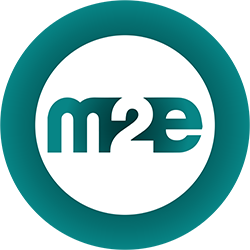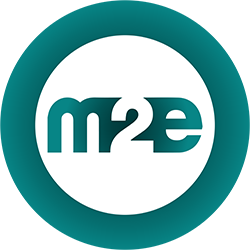Start your European career today. Fill out the form to explore jobs, visas, and relocation support — your future in Europe starts here!
Get in touch with us!
Jobs in Europe
European organisations are seeking skilled IT professionals to fill software and hardware roles. As more companies integrate technology into their operations, the demand for IT engineers has surged. From full-stack development to networking and project management, there are opportunities for nearly every IT specialisation. M2S Group can help you turn your education and experience into a rewarding career abroad. Our expertise extends across leading European countries such as Germany, Ireland, Netherlands, Denmark, and Sweden. Discover how our global reach and knowledge can help you secure a prosperous career and build a life in Europe.

Why Apply for IT Jobs in Europe?
- Abundant Job Opportunities: Europe offers many IT job openings across various sectors and industries.
- Competitive Salaries: IT professionals in Europe can earn high salaries, especially in countries like Germany, the UK, and Switzerland.
- International Exposure: Working in Europe provides valuable international experience, helping you grow professionally and personally.
- Career Advancement: The dynamic tech scene in Europe provides opportunities for rapid career advancement.
- Networking Opportunities: Build a professional network on a global scale by connecting with IT professionals across Europe, opening doors to more career opportunities.
Scope for IT Professionals in Europe
The European IT sector is expanding rapidly, with companies increasingly reliant on skilled IT professionals to drive innovation and growth. The demand for software development, cybersecurity, data science, and AI talent is higher than ever. In 2023, the global IT sector grew to $8,852.41 billion, and Europe is crucial to this growth.
IT Jobs in Germany
- Job Openings (2023): 770,301
- Key Sectors: Cybersecurity, Software Development, Data Science, Automotive Software, Manufacturing Technology
- Major Cities: Berlin, Munich, Frankfurt, Hamburg
- Highlights: Germany has a strong demand for IT professionals, particularly in software development, cybersecurity, and data science. The country is home to several leading technology firms known for their focus on innovation and industry.
IT Jobs in the United Kingdom
- Job Openings (2023): 957,000
- Key Sectors: IT Consulting, Fintech, Software Development, Cybersecurity, Data Science
- Major Cities: London, Manchester, Edinburgh, Birmingham
- Highlights: The UK has a dynamic IT job market, with high demand for skilled professionals in fintech, software development, and cybersecurity. London is a central global tech hub, and cities like Manchester and Edinburgh offer great opportunities.
IT Jobs in Ireland
- Job Openings (2023): 350,000+
- Key Sectors: Cloud Computing, Software Development, Fintech, AI, Cybersecurity
- Major Cities: Dublin, Cork, Limerick
- Highlights: Ireland is known for its strong IT sector, particularly in cloud computing, fintech, and artificial intelligence. Dublin is a leading city for tech companies, and there is a growing demand for IT professionals nationwide.
IT Jobs in the Netherlands
- Job Openings (2023): 290,000+
- Key Sectors: AI, Software Development, Data Science, IT Consulting, Cybersecurity
- Major Cities: Amsterdam, Rotterdam, Utrecht
- Highlights: The Netherlands has become a key player in Europe's tech landscape, strongly emphasising AI and data science. Amsterdam is a central tech hub, and the country offers excellent job opportunities for IT professionals.
IT Jobs in France
- Job Openings (2023): 500,000+
- Key Sectors: Software Development, AI, Cloud Computing, Cybersecurity
- Major Cities: Paris, Lyon, Toulouse, Marseille
- Highlights: France has a thriving IT job market, particularly in software development and artificial intelligence. Paris is a key tech hub with increasing demand for IT professionals across various industries.
IT Jobs in Sweden
- Job Openings (2023): 100,000+
- Key Sectors: Fintech, AI, Software Development, Cybersecurity, Data Science
- Major Cities: Stockholm, Gothenburg, Malmö
- Highlights: Sweden is a leader in the tech industry, especially in fintech and AI. Stockholm is a global tech centre, and the country offers a robust job market for IT professionals.
IT Jobs in Denmark
- Job Openings (2023): 70,000+
- Key Sectors: IT Consulting, Cybersecurity, Software Development, Green Tech
- Major Cities: Copenhagen, Aarhus, Odense
- Highlights: Denmark's IT sector is rapidly growing, particularly in green tech and cybersecurity. The country is home to several innovative tech companies, making it an attractive destination for IT professionals.
IT Jobs in Switzerland
- Job Openings (2023): 90,000+
- Key Sectors: Fintech, AI, Cybersecurity, Software Engineering
- Major Cities: Zurich, Geneva, Basel
- Highlights: Switzerland's strong economy and tech-friendly environment make it an excellent place for IT professionals. Zurich and Geneva are key cities for fintech and AI-related roles.
IT Jobs in Belgium
- Job Openings (2023): 80,000+
- Key Sectors: Software Development, Data Science, AI, Cybersecurity
- Major Cities: Brussels, Antwerp, Ghent
- Highlights: Belgium offers excellent opportunities for IT professionals, especially in software development and cybersecurity. As the EU's capital, Brussels is a crucial centre for tech innovation.
IT Jobs in Finland
- Job Openings (2023): 60,000+
- Key Sectors: AI, Software Development, Cybersecurity, Mobile Technology
- Major Cities: Helsinki, Espoo, Tampere
- Highlights: Finland is home to a growing tech sector, with a strong focus on AI and mobile technology. Helsinki is a leading city for tech jobs, and the demand for skilled IT professionals continues to rise.
IT Jobs in Norway
- Job Openings (2023): 50,000+
- Key Sectors: Software Engineering, Data Science, AI, Cloud Computing
- Major Cities: Oslo, Bergen, Stavanger
- Highlights: Norway offers excellent software engineering and cloud computing job prospects. Oslo is the leading tech hub, and the country's focus on innovation creates many opportunities for IT professionals.
IT Jobs in Austria
- Job Openings (2023): 45,000+
- Key Sectors: Software Development, Cybersecurity, Digital Transformation
- Major Cities: Vienna, Salzburg, Graz
- Highlights: Austria's IT sector is expanding, particularly in digital transformation and cybersecurity. Vienna is a critical city for IT jobs, offering competitive salaries and growing professional demand.
IT Jobs in Spain
- Job Openings (2023): 120,000+
- Key Sectors: Fintech, Software Development, Data Science, AI
- Major Cities: Madrid, Barcelona, Valencia
- Highlights: Spain has a growing tech sector, with Madrid and Barcelona as significant hubs. The demand for IT professionals, particularly in fintech and AI, is rising.
IT Jobs in Italy
- Job Openings (2023): 110,000+
- Key Sectors: Software Engineering, IT Consulting, Fintech, Cybersecurity
- Major Cities: Milan, Rome, Turin
- Highlights: Italy offers various software engineering and fintech opportunities. Milan is the country's leading tech hub, with a growing need for IT professionals.
IT Jobs in Poland
- Job Openings (2023): 150,000+
- Key Sectors: Software Development, Cybersecurity, AI, Data Science
- Major Cities: Warsaw, Krakow, Wroclaw
- Highlights: Poland has become a significant destination for IT professionals, with high demand for software development and cybersecurity roles. Warsaw and Krakow are key cities for tech jobs.
IT Jobs in Hungary
- Job Openings (2023): 40,000+
- Key Sectors: IT Consulting, Software Development, Data Science
- Major Cities: Budapest, Debrecen, Szeged
- Highlights: Hungary's IT sector is growing, with Budapest as the leading city for tech jobs. There is a high demand for IT consulting and data science roles.
IT Jobs in Portugal
- Job Openings (2023): 35,000+
- Key Sectors: IT Consulting, Software Development, Fintech, Cybersecurity
- Major Cities: Lisbon, Porto, Braga
- Highlights: Portugal is emerging as a tech hub, with Lisbon leading. The demand for IT professionals, especially in software development and fintech, is steadily increasing.
IT Jobs in the Czech Republic
- Job Openings (2023): 55,000+
- Key Sectors: Software Development, Cybersecurity, AI, Cloud Computing
- Major Cities: Prague, Brno, Ostrava
- Highlights: The Czech Republic has a growing tech industry, with Prague and Brno as critical cities for IT jobs. There is a high demand for software development and cybersecurity professionals.
IT Jobs in Slovakia
- Job Openings (2023): 20,000+
- Key Sectors: IT Consulting, Software Development, Data Science
- Major Cities: Bratislava, Košice, Prešov
- Highlights: Slovakia offers excellent opportunities in IT consulting and software development. Bratislava is the leading city for tech jobs, with a growing demand for skilled IT professionals.
IT Jobs in Estonia
- Job Openings (2023): 15,000+
- Key Sectors: Software Development, Cybersecurity, AI, Digital Services
- Major Cities: Tallinn, Tartu, Narva
- Highlights: Estonia is known for its digital innovation and is an excellent destination for IT professionals. Tallinn is the country's tech hub, with increasing demand for software developers and cybersecurity experts.
Top MNCs hiring IT professionals
Get insights on diverse Information Technology job opportunities in different countries. These companies are a reference among the top MNCs, and there are many other MNCs in the IT sector that provide ample opportunities to candidates.
| Country | Top MNCs |
|---|---|
| Germany | - SAP SE - Siemens - Deutsche Telekom - BMW - BASF - Volkswagen Group - Continental AG - Deutsche Bank |
| United Kingdom | - ARM Holdings - BT Group - Sage Group - Rolls Royce Holdings - BAE Systems - Intellectsoft LLC - AstraZeneca - Pearson |
| Ireland | - Google - Microsoft - Accenture - Intel - Dell Technologies - IBM - HubSpot |
| Netherlands | - Philips - Booking.com - TomTom - ASML - Shell - ING Group - Rabobank - AkzoNobel |
| France | - Capgemini - Dassault Systèmes - Thales Group - Orange - Atos - L'Oréal - Airbus - Schneider Electric |
| Sweden | - Ericsson - Volvo Group - Spotify - Electrolux - Klarna - Telia Company - IKEA - Scania |
| Switzerland | - UBS - Credit Suisse - Logitech - Swisscom - Nestlé - Novartis - Roche - ABB Group |
| Denmark | - Maersk - Novo Nordisk - Danske Bank - Vestas - LEGO Group - SimCorp - GN Store Nord - Pandora |
| Finland | - Nokia - KONE - Wartsila - TietoEVRY - Fortum - F-Secure - Rovio Entertainment - Elisa |
| Italy | - Leonardo - Enel - Ferrari - Eni - Telecom Italia - UniCredit - Pirelli - Luxottica |
| Spain | - Telefónica - Amadeus IT Group - Indra Sistemas - Santander - BBVA - Iberdrola - Ferrovial - SEAT |
| Austria | - Red Bull - OMV Group - Raiffeisen Bank International - Erste Group - Siemens Austria - AVL List GmbH - Verbund - Telekom Austria |
| Belgium | - Proximus - Solvay - UCB - AB InBev - Umicore - Delhaize - ING Belgium - Telenet |
| Norway | - Equinor - Telenor - DNB - Aker Solutions - Yara International - Kongsberg Gruppen - Schibsted - Norsk Hydro |
| Poland | - Allegro - CD Projekt - Comarch - PKN Orlen - Asseco - LOT Polish Airlines - LPP - PKO Bank Polski |
| Portugal | - EDP - Galp - Jerónimo Martins - NOS - Sonae - Altice Portugal - OutSystems - Farfetch |
| Czech Republic | - Avast - Škoda Auto - O2 Czech Republic - Home Credit Group - ESET - PPF Group - CEZ Group - T-Mobile Czech Republic |
| Hungary | - OTP Bank - MOL Group - Richter Gedeon - Magyar Telekom - Wizz Air - Graphisoft - IBM Hungary - Prezi |
| Sweden | - Ericsson - Spotify - Volvo - Scania - Klarna - IKEA - Electrolux - Telia Company |
| Estonia | - Skype - TransferWise (Wise) - Playtech - Bolt - Nortal - Pipedrive - Veriff - Starship Technologies |
Cost of Living in European Countries
| Country | Housing Rent | Transportation | Groceries & Essentials | Healthcare | Additional Insights |
|---|---|---|---|---|---|
| Germany | It is generally affordable but varies by city (Berlin, Munich, and Frankfurt are more expensive). | Well-developed public transport system (trains, buses, trams); affordable monthly passes. | Grocery prices are reasonable; local supermarkets like Aldi and Lidl offer affordable options. | A high-quality healthcare system is covered mainly by public insurance. | The cost of living in Germany is lower than in many Western European countries. Munich and Frankfurt are more expensive than Berlin and smaller cities. |
| United Kingdom | Rent varies widely; London is expensive, but other cities like Manchester, Birmingham, and Edinburgh are more affordable. | Excellent public transportation, especially in London (Underground, buses); affordable passes available. | Groceries are moderately priced; supermarkets like Tesco, Sainsbury's, and Aldi are popular. | Healthcare is covered by NHS (National Health Service), making medical expenses manageable. | London has high housing costs but high-paying jobs. Research rural and suburban areas for more affordable living options. |
| Netherlands | Amsterdam and The Hague have high rent; other cities like Utrecht and Eindhoven are more affordable. | Public transportation (trains, buses, and trams) is efficient and affordable. | Groceries are moderately priced; popular stores include Albert Heijn and Lidl. | Healthcare requires mandatory insurance, costs are relatively moderate. | Amsterdam is the most expensive city, but other cities like Rotterdam and Utrecht offer more affordable living. |
| France | Paris is expensive for rent; other cities like Lyon, Toulouse, and Marseille are more affordable. | Well-connected public transport (buses, metros, trams); affordable passes available. | Groceries are moderately priced; Carrefour and Intermarché are popular chains. | Public healthcare system is excellent, partially covered by public insurance. | Cost of living is high in Paris but lower in rural and suburban areas. Good quality of life, with healthcare and education being major advantages. |
| Sweden | Stockholm has higher rent; other cities like Gothenburg and Malmö offer more affordable options. | Public transportation is excellent; monthly passes for buses, trams, and metros are affordable. | Groceries are slightly higher in cost; popular chains include ICA and Coop. | High-quality healthcare system, requires mandatory insurance. | Sweden has a high cost of living, but wages and quality of life compensate. Stockholm is expensive, but other cities offer affordable options. |
| Switzerland | Rent is among the highest in Europe, especially in Zurich and Geneva. | High-quality public transport; however, monthly passes can be expensive. | Groceries are expensive; popular chains include Migros and Coop. | Excellent healthcare system but expensive; private insurance is mandatory. | Switzerland has one of the highest living costs in Europe, but salaries are high, and the quality of life is outstanding. Zurich and Geneva are particularly pricey. |
| Ireland | Dublin is expensive for rent; other cities like Cork and Limerick are more affordable. | Good public transport options, especially in Dublin; monthly passes are reasonable. | Groceries are moderately priced; stores like Tesco and Dunnes Stores are common. | Public healthcare is accessible but requires insurance for certain services. | Dublin has a high cost of living, but other areas are more affordable. High-quality education and job opportunities in the tech sector. |
| Denmark | Copenhagen has high rent; other cities like Aarhus and Odense are more affordable. | Public transport is well-organized, with affordable options for buses, metros, and bikes. | Groceries are moderately priced; chains like Netto and Føtex are popular. | Healthcare is free under the public system. | Denmark has a high standard of living, but Copenhagen is costly. Wages are generally high, and the public services, including healthcare, are excellent. |
| Finland | Helsinki has higher rent; other cities like Espoo and Tampere are more affordable. | Excellent public transportation (buses, trams, metro); affordable monthly passes. | Groceries are moderately priced; popular stores include K-Market and Lidl. | Healthcare is mostly public and affordable. | Helsinki has a high cost of living compared to smaller cities, but wages and quality of life balance out. |
| Norway | Oslo has high rent; other cities like Bergen and Trondheim are more affordable. | Public transportation is efficient but can be expensive; monthly passes are available. | Groceries are expensive; chains like Rema 1000 and Coop are common. | High-quality healthcare system, partially covered by public insurance. | Norway has a high cost of living, especially in Oslo, but offers high salaries and an excellent standard of living. |
| Belgium | Rent is moderate, with Brussels being slightly more expensive than cities like Antwerp or Ghent. | Public transport is efficient and reasonably priced, especially in Brussels. | Groceries are affordable; Delhaize and Colruyt are popular stores. | Healthcare is excellent, covered mostly by public insurance. | Brussels offers a reasonable cost of living compared to other European capitals, with good public services and healthcare. |
| Austria | Vienna is affordable compared to Western European capitals; other cities like Graz are even cheaper. | Excellent public transportation system; affordable monthly passes for buses, trams, and metros. | Groceries are moderately priced; popular stores include Billa and Spar. | High-quality healthcare system, mostly covered by public insurance. | Austria offers an affordable cost of living with a high quality of life, especially in Vienna and smaller cities. |
| Spain | Rent in Madrid and Barcelona is higher; smaller cities like Valencia and Seville are more affordable. | Public transport is excellent, with affordable options for metros, buses, and trains. | Groceries are affordable; Mercadona and Carrefour are popular supermarket chains. | Public healthcare is free and accessible. | Spain offers a relatively low cost of living with affordable rent, groceries, and excellent public services in smaller cities compared to Madrid or Barcelona. |
| Italy | Rent in Milan and Rome is expensive; other cities like Turin and Florence are more affordable. | Public transport is efficient in larger cities; affordable monthly passes for buses and metros. | Groceries are moderately priced; popular stores include Esselunga and Coop. | Public healthcare is accessible and mostly free. | Italy offers a diverse range of living costs, with Milan and Rome being more expensive, while smaller cities offer a lower cost of living. |
| Poland | Rent is affordable in cities like Warsaw and Krakow, but prices are rising in major cities. | Public transportation is affordable and efficient, with trams and buses being common. | Groceries are reasonably priced; popular stores include Biedronka and Lidl. | Healthcare is accessible but may require private insurance for better coverage. | Poland offers an affordable cost of living compared to Western Europe, with reasonable housing and transportation costs. |
| Portugal | Rent in Lisbon is rising but remains affordable compared to other European capitals. | Public transport is well-developed and affordable; trams, metros, and buses are common. | Groceries are affordable; Pingo Doce and Continente are popular supermarket chains. | Healthcare is mostly public and affordable. | Portugal has a low cost of living, especially outside of Lisbon. The healthcare system and public services are affordable and of good quality. |
| Czech Republic | Rent in Prague is rising but still affordable compared to Western Europe; smaller cities like Brno are cheaper. | Public transport is efficient and affordable; trams and buses are common. | Groceries are reasonably priced; chains like Tesco and Albert are popular. | Healthcare is affordable but may require additional private insurance. | The Czech Republic offers a good balance of cost and quality of life, with affordable housing and public services in smaller cities. |
| Hungary | Rent in Budapest is affordable but rising; smaller cities like Debrecen are cheaper. | Public transport is efficient and affordable; trams, buses, and metros are common in Budapest. | Groceries are affordable; popular chains include Spar and Tesco. | Healthcare is accessible but may require private insurance for better coverage. | Hungary offers one of the lowest costs of living in Europe, with affordable rent, groceries, and transportation in most cities. |
| Estonia | Rent in Tallinn is affordable compared to Western Europe. | Public transport is efficient and affordable, with buses and trams commonly used. | Groceries are moderately priced; popular stores include Rimi and Maxima. | Healthcare is accessible, mostly covered by public insurance. | Estonia offers an affordable cost of living with growing job opportunities in IT and tech sectors. |
Average Salaries for IT Professionals in Europe (Annual Gross)
| Country | Average IT Salary (EUR) | Key IT Roles in Demand |
|---|---|---|
| Germany | €55,000 - €85,000 | Software Engineer, Data Scientist, Cybersecurity Expert |
| United Kingdom | €45,000 - €80,000 | Software Developer, IT Consultant, Cloud Architect |
| Ireland | €50,000 - €85,000 | DevOps Engineer, Full Stack Developer, Cloud Engineer |
| Netherlands | €50,000 - €80,000 | Software Developer, Data Analyst, AI Engineer |
| France | €45,000 - €75,000 | Software Developer, IT Consultant, Cybersecurity Expert |
| Sweden | €50,000 - €85,000 | Software Engineer, Data Scientist, AI Specialist |
| Denmark | €55,000 - €90,000 | IT Architect, Software Engineer, Data Scientist |
| Switzerland | €90,000 - €130,000 | Software Engineer, Cybersecurity Expert, IT Manager |
| Belgium | €50,000 - €80,000 | IT Consultant, DevOps Engineer, Software Engineer |
| Finland | €45,000 - €75,000 | Software Developer, IT Consultant, Data Scientist |
| Norway | €60,000 - €95,000 | Software Engineer, IT Consultant, Data Analyst |
| Austria | €50,000 - €75,000 | Software Developer, Cloud Engineer, Data Scientist |
| Spain | €35,000 - €60,000 | IT Consultant, Software Developer, Systems Analyst |
| Italy | €35,000 - €60,000 | Software Engineer, IT Consultant, Data Scientist |
| Poland | €35,000 - €60,000 | Software Engineer, DevOps Engineer, IT Consultant |
| Portugal | €30,000 - €55,000 | Software Developer, IT Analyst, Data Scientist |
| Czech Republic | €35,000 - €60,000 | Software Developer, IT Consultant, Cloud Engineer |
| Hungary | €30,000 - €50,000 | Software Developer, Systems Engineer, Data Analyst |
| Estonia | €35,000 - €55,000 | Software Developer, IT Security Specialist, Data Engineer |
| Lithuania | €30,000 - €50,000 | Software Developer, IT Consultant, Data Scientist |
Types of Visas for IT Professionals in Europe
| Country | Visa Type | Description |
|---|---|---|
| Germany | EU Blue Card | For highly skilled workers, especially IT professionals, with a valid job offer. |
| ICT Card | For intra-company transfers of employees to Germany. | |
| United Kingdom | Skilled Worker Visa | For skilled workers, including IT professionals, sponsored by a UK employer. |
| Global Talent Visa | For highly skilled individuals in science, engineering, and technology sectors. | |
| Ireland | Critical Skills Employment Permit | For skilled workers in key sectors, including IT and technology. |
| General Employment Permit | For other workers with a job offer in Ireland. | |
| Netherlands | Highly Skilled Migrant Visa | For IT professionals and other highly skilled workers with a valid job offer. |
| ICT Card | For intra-company transfers within multinational companies. | |
| France | Talent Passport | For highly skilled professionals in sectors like IT and engineering. |
| ICT Card | For intra-company transfers to French branches. | |
| Sweden | Work Permit | For skilled workers, especially in IT, with a job offer in Sweden. |
| Denmark | Fast-Track Scheme | For IT professionals and skilled workers with job offers from Danish companies. |
| Pay Limit Scheme | For highly paid professionals, including IT experts. | |
| Switzerland | L Permit (Short-Term Work Visa) | For short-term employment in Switzerland. |
| B Permit (Long-Term Work Visa) | For long-term employment, including IT roles, in Switzerland. | |
| Belgium | EU Blue Card | For highly skilled workers, including IT professionals. |
| Single Permit | Combines residence and work permit for skilled workers. | |
| Finland | Residence Permit for Employed Persons | For skilled workers with a valid job offer. |
| Norway | Skilled Worker Visa | For skilled professionals, including IT experts, with job offers in Norway. |
| Austria | Red-White-Red Card | For highly skilled workers, especially in IT, with a job offer. |
| Spain | EU Blue Card | For highly skilled IT professionals with a job offer. |
| Highly Qualified Professional Visa | For professionals in key sectors like IT and engineering. | |
| Italy | EU Blue Card | For highly skilled workers, including those in IT, with a job offer. |
| Poland | EU Blue Card | For highly skilled workers in sectors such as IT. |
| National Long-Term Visa (D Visa) | For professionals with long-term job offers in Poland. | |
| Portugal | Highly Qualified Activity Visa | For professionals with a valid job offer in Portugal, including IT. |
| Czech Republic | Employee Card | For long-term employment, including IT jobs, with a Czech employer. |
| Hungary | EU Blue Card | For highly skilled workers, including those in IT. |
| Estonia | EU Blue Card | For IT professionals with a valid job offer in Estonia. |
| Lithuania | EU Blue Card | For highly skilled workers, including IT professionals. |
Benefits of Working Abroad as an IT Professional in Europe
Germany
Germany is known for its booming tech industry, innovative automotive technology, and highly skilled workforce. It offers a balanced lifestyle, robust social security, and a high quality of life.
Benefits of working in Germany:
- Average Salary: €55,000 - €85,000 per year
- Working Hours: 38-40 hours a week
- Paid Time Off: 30 days of paid leave per year
- High quality of life and excellent work-life balance
- Access to world-class healthcare (public healthcare system)
- Social security benefits (unemployment insurance, healthcare, and pension)
- Pension benefits and job security
- Affordable cost of living compared to other Western European countries
- Opportunities to work in global companies (automotive, software, and tech sectors)
United Kingdom
The UK offers access to global companies in the tech sector, a diverse cultural scene, and a high standard of living. It boasts a mix of urban and rural environments, providing a unique work-life balance.
Benefits of working in the UK:
- Average Salary: £60,000 per year
- Working Hours: 40-48 hours a week
- Paid Time Off: 28-40 days of paid leave per year
- High quality of life with access to free healthcare (NHS)
- Social Security benefits and state pension
- Access to global companies and tech hubs (London, Manchester)
- Easy travel access to Europe for leisure and business
- Free education for dependents in public schools
- Diverse and inclusive society with rich cultural experiences
Ireland
Ireland is a global tech hub with multinational companies like Google and Facebook. The country is known for its tech talent, high quality of life, and proximity to the EU market.
Benefits of working in Ireland:
- Average Salary: €50,000 - €85,000 per year
- Working Hours: 39-40 hours a week
- Paid Time Off : 20 days of paid leave per year
- High quality of living and affordable healthcare
- Social security benefits (pension, healthcare, unemployment)
- Access to multinational tech companies (Google, Facebook, Intel)
- Strong job security with a stable economy
- Vibrant expat community and a rich cultural scene
- Tax benefits for certain professionals
Netherlands
The Netherlands is one of Europe’s most tech-friendly countries, known for its innovation and high quality of life. Cities like Amsterdam and Rotterdam are home to many multinational tech companies.
Benefits of working in the Netherlands:
- Average Salary: €50,000 - €80,000 per year
- Working Hours: 36-40 hours a week
- Paid Time Off : 25 days of paid leave per year
- High quality of life and strong work-life balance
- Comprehensive social security benefits (pension, healthcare, unemployment)
- Access to high-quality healthcare (public and private systems)
- Job security and strong legal protections for workers
- Vibrant expat community and opportunities in global companies
- English is widely spoken and used in many workplaces
Sweden
Sweden is known for its focus on work-life balance and innovative tech ecosystem. It offers a high quality of life and is home to global companies like Spotify and Ericsson.
Benefits of working in Sweden:
- Average Salary: €50,000 - €85,000 per year
- Working Hours: 40 hours a week
- Paid Time Off : 25 days of paid leave per year
- High standard of living with excellent public services
- Free healthcare and education for residents
- Social security benefits (unemployment, healthcare, pension)
- Innovative and tech-focused work environment
- Job security and family-friendly policies (parental leave, childcare)
- English is widely spoken in professional environments
Denmark
Denmark consistently ranks high in work-life balance and offers a thriving tech scene. IT professionals enjoy excellent working conditions, solid social benefits, and a high quality of life.
Benefits of working in Denmark:
- Average Salary: €55,000 - €90,000 per year
- Working Hours: 37 hours a week
- Paid Time Off : 25 days of paid leave per year
- High quality of life with a strong work-life balance
- Free healthcare under the public system
- Comprehensive social security benefits (pension, unemployment, healthcare)
- Job security and family-friendly policies (generous parental leave)
- Diverse and inclusive work culture
Switzerland
Switzerland is renowned for its high salaries, job security, and excellent quality of life. The country is home to global finance, tech, and pharmaceutical corporations.
Benefits of working in Switzerland:
- Average Salary: €90,000 - €130,000 per year
- Working Hours: 40-42 hours a week
- Paid Time Off: 20-25 days of paid leave per year
- High standard of living with access to world-class healthcare
- Comprehensive pension and social security benefits
- Job security with strong legal protections for workers
- Opportunities in global companies (pharmaceuticals, finance, tech)
- Beautiful natural landscapes and outdoor lifestyle
Frequently Asked Questions
- What qualifications do I need to work in IT in Europe?
-
Most IT positions require a relevant degree in computer science, information technology, or a related field. Certifications in specific technologies or methodologies (e.g., Cisco, Microsoft, AWS, Agile) can also enhance your qualifications.
- Are there job opportunities for IT professionals in all European countries?
-
Many European countries have a strong demand for IT professionals, particularly in tech hubs like Germany, the United Kingdom, France, the Netherlands, and Sweden. However, opportunities may vary by location and specific skill sets.
- Do I need a work visa to work in Europe as an IT professional?
-
Yes, a work visa is typically required for non-EU nationals. The specific visa type will depend on the country you wish to work in and your job offer.
- What is the average salary for IT professionals in Europe?
-
Salaries vary by country and specialisation. For instance, IT professionals in Germany can earn between €50,000 and €80,000 per year, while those in the UK can earn between £30,000 and £60,000.
- Is knowledge of the local language necessary for IT jobs in Europe?
-
While many IT companies operate in English, particularly multinational firms, knowledge of the local language can be beneficial, especially in smaller companies or client-facing roles.
- What are the typical working hours for IT professionals in Europe?
-
Working hours can vary by country and company but generally range from 35 to 40 hours per week. Many companies offer flexible working arrangements, including remote work options.
- Are IT professionals entitled to social benefits and insurance when working in Europe?
-
Yes, most European countries provide social benefits such as healthcare coverage, pensions, and paid leave to employees, including IT professionals.
- How long does it take to process a work visa for IT professionals?
-
Processing times can vary by country and visa type, ranging from a few weeks to several months.
- Can I work in multiple European countries with the same qualifications?
-
Qualifications are often country-specific, but some EU member states may allow for easier recognition of IT qualifications. Researching the requirements for each country is essential.
- What opportunities for advancement exist in the IT field in Europe?
-
With experience, IT professionals can advance to roles such as IT manager, project manager, or specialize in areas like cybersecurity, data science, or software development. Many companies offer career development programs and training opportunities
Looking for inspiration
Global clients share how M2S Group helped them secure careers, work permits, and visas in Europe...
At M2S Group, we aim to help you become a true global citizen by providing exceptional support in your international career and immigration journey.
Read MoreOur Platform
We connect institutions, employers, students, job seekers, and recruitment partners worldwide.

Employer
Are you recruiting skilled workers from the CIS, African, Asian regions, or other EU countries to work in Poland, Hungary, Lithuania, Slovakia, Estonia, Germany, and other EU nations? Partner with Moving2Europe.eu for efficient and reliable recruitment solutions.

Job seekers
Are you looking to work in Poland, Hungary, Lithuania, Slovakia, Estonia, Germany, or other EU countries? Could you let Moving2Europe. Can you connect with top employers and help with recruitment?

Recruitment Agency
Do you recruit prospective students and workers eager to study or work in Poland, Hungary, Lithuania, Slovakia, Estonia, Germany, or other EU countries? Join Moving2Europe.eu as a trusted Recruitment Partner and grow your network globally.
Do you have any questions?
We are here to help you explore opportunities to work and live in Europe. Our experts are ready to assist you with questions about job searching, obtaining a visa, recognising qualifications, and learning a European language. To learn more about contacting us, please click on one of the icons in the bar below.









